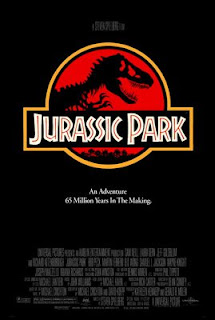Math in the News: My, What a Big Prime You Have!
Math made headlines again last week, with the announcement that the Program in Computing, a subset of UCLA's Math department, had discovered a prime number with approximately 13 million digits. Among other places, this announcement could be seen on the front page of Yahoo! News - if you missed it, here's the link. This discovery gives rise to some natural questions, which I will try to address here:
1) How big is a 13 million digit number?
2) Who cares about big primes?
3) Is this what mathematicians do all day?
The first question is the easiest to answer. In short, a 13 million digit number is very, very large. This link displays the beginning and ending string of digits that compose the newly discovered prime, and for those of you with some time on your hands it also has a link to the full text of the prime midway through the page (the page with the full printout of the prime takes up 16.73 megabytes).
To give another sense of perspective, suppose you read the digits in this...
Math Gets Around: Politics, Part 2
As you may recall, I have already discussed certain perils associated with different voting systems. However, given all the commotion this election is causing, I thought it may be worthwhile to discuss voting in a bit more detail.
There is plenty of information online regarding the relationship between math and voting, for those with interest enough to seek it out. But perhaps the best centralized internet location on this topic comes from this year's Mathematics Awareness Month website.
In April of every year, mathaware.org hosts a Mathematics Awareness month, complete with articles and contests related to the year's theme of forging a bridge between mathematics and what is often times a seemingly disparate discipline. It was no doubt with tremendous foresight that they selected "Mathematics and Voting" for this year's theme.
A good way to kill a few minutes is with their voting methods simulation. On this page, you can vote for potential presidential candidates using three voting...
Math in the Movies: Superman II
There is a joke in mathematics circles that has become well-known enough to merit its own entry on Wikipedia. This joke is referred to as the Teakettle Principle. Here's how it goes:
A mathematician and an engineer go into the kitchen one day to make a pot of tea. Finding an empty kettle on the stove, they fill it with water, then turn on the stove and let the water boil, following the usual protocol when making tea.
The next day, the two again decide to make a pot of tea. However, upon entering the kitchen, they find that the kettle on the stove has already been filled with water! Now faced with a new problem, the engineer suggests that they simply heat the water that's already in the kettle.
"Nonsense!" the mathematician replies. "It would be far simpler to pour the water out and replace the empty kettle on the stove top. Then we will have reduced this problem to one we have already solved!"
Ok, so the joke isn't that funny. Its charm comes from its needling of the mathematical...
Math in the Movies: Jurassic Park
 Ah, 1993. Andrew Wiles was on the verge of proving Fermat's Last Theorem. Late night talk show hosts poked fun at our President's love of McDonald's. And on June 11th, a little film known as Jurassic Park released to audiences throughout the country.
Ah, 1993. Andrew Wiles was on the verge of proving Fermat's Last Theorem. Late night talk show hosts poked fun at our President's love of McDonald's. And on June 11th, a little film known as Jurassic Park released to audiences throughout the country.
As it held the top spot for most successful movie of all time for four years (thank you, Titanic), there is no doubt this movie has secured a place in our pop culture heritage. And while it has aged in some respects - science has advanced to the point where it can genetically engineer species that went extinct millions of years ago, but a little girl is still most impressed by the fact that cars on the island come equipped with "interactive CD-ROMs," for instance - the film still serves up a quintessential example of the 90s summer blockbuster.
If the film is not fresh in your minds, you may be asking yourself what a movie about dinosaurs wreaking modern day havoc has to do with mathematics. In response to this, I turn your attention...
Math on TV/Math Gets Around: Brooke Knows Best
Recently, I found myself thinking of mathematics in an unlikely set of circumstances: while watching VH1's latest "Celebreality" show, Brooke Knows Best. I realize that an admission like this may be embarrassing, and so it is for the sake of your edification, dear reader, that I am willing to go on the record with this deliciously shameful information.
For those of you who may not know, the titular character is the daughter of Santa with Muscles star and All-American hero, Hulk Hogan. In the show, Brooke lives in an expensive looking condo in Miami, goes to the beach, and sings her own theme song. This is about as much as I know. I swear.
The particular episode to which I would like to draw your attention (Episode 4) involved Brooke traveling to Panama City, Florida, to host some Spring Break parties. And I bet you thought math and spring break were incompatible.
Because of his overprotective nature (or because the producers thought it would make better television), Hulk Hogan...
Math in the News: Math is Cool, I Swear!
As you may recall, my first post briefly discussed the California Board of Education's mandate that every 8th grader in the state must take Algebra. My purpose here is not to discuss the ruling further, but rather to point out the response article published last month in the San Francisco Chronicle.
The article is well-researched and thoroughly written. Not only does it feature discussion of the pros and cons of such a mandate from a wide range of interviewees, but it also tries to address the question of why Algebra, and mathematics in general, is perceived so terribly by American kids and adults alike. It also attempts to paint a picture of what Algebra actually is, for those of us who fell by the wayside of mathematics long ago.
The current state of mathematics education is given quite a scathing review by the people mentioned in the article who actually know their mathematics. The harshest critic is former UC Santa Cruz mathematician Paul Lockhart, who wrote the following in...
An Open Letter to Users of Yahoo! Answers
Dear Yahoo! Answers Users,
For every guy who has dreamed of looking like a Hoobastank concert attendee, or for every girl who has dreamed of looking like a Bratz doll, Yahoo! Answers provides you with a forum to not only construct the avatar of your dreams, but also to ask questions on a variety of topics, and get real answers from real people.
Unfortunately, as a math educator, I feel compelled to offer criticism regarding the Mathematics section of your site. The existence of this section is not what bothers me - it is the user behavior, both of those asking questions and those answering them.
Let's start with the askers. I'll be blunt: please stop using the internet as your interactive cheat sheet. There are a number of users of Yahoo!'s service who have no qualms asking for answers on their homework - many do it blatantly, and with no regard to the importance of these formative years in their mathematics education.
Consider the following...
Math in the News: Counting without Language
Last week, some of you may have seen this article about a study on Australian aboriginies. The study suggests that, even without having the language to describe numbers, the human mind has an innate ability to count and differentiate between numbers.
The study focused on two Aborigine tribes in Australia, and found that even though both tribes lack words for individual numbers (the languages only have words to describe 'one,' 'two,' 'few,' and 'many'), members of the tribe nevertheless seem to have a sense for different numbers and counting. This conclusion was reached, for example, by banging two sticks together n times, and asking children to represent those n times with concrete objects.
I am no linguist, so I cannot speak to the linguistic ramifications of this study. From a mathematical viewpoint, however, it is certainly a good thing to hear, because it suggests that the ability to count is innate within all of us, independent (in a sense...
Math in the Movies: Good Will Hunting
Winning them the Oscar for Best Original Screenplay in 1998, Good Will Hunting propelled Matt Damon and Ben Affleck to the Hollywood A-list (no doubt Phantoms would have done this for Ben Affleck, had it not been for the success of Good Will Hunting only months earlier). I will not summarize the plot, except to say that in this film, Matt Damon is a math superstar. For those wanting more in the way of plot summary, this trailer may help to refresh your memory:
There are a number of films that center around math geniuses, and for the most part they have met with some degree of critical and commercial success. Our purpose here is not to critique these films, but to answer a simple question: In what ways do these films perpetuate stereotypes about mathematics and mathematicians, and in what ways do these films rise above those same stereotypes? Here we use a rather crude scoring system, whereby each perpetuated stereotype corresponds to a loss of one point, while each stereotype...
Math Gets Around: Dating
Do you wonder whether you will ever find true love? Are you tired of looking for Mr. or Ms. Right? (I mean this in a metaphorical sense - if you are actually looking for an individual by the name of Right, this article will probably be of no use to you.) Have you grown weary of idle party chit-chat, and awkward mornings after nights spent in venues with deceptive lighting? Well, my friend, whether you are willing to accept it or not, mathematics can help you find the one to share your life with.
Unfortunately, the primary disadvantage to the method described below is that if you don't know about it before you jump into the dating scene, it may be too late for you to utilize. But with an open mind, and a willingness to let mathematics do its work, you can maximize the likelihood that you will find that special someone.
 How is it that math nerds get all the girls? Read on to find out! (AP Photo/HO/20th Century Fox)
How is it that math nerds get all the girls? Read on to find out! (AP Photo/HO/20th Century Fox)
How can mathematics help you find a mate? Let's formalize the...
Page 19 of 20


